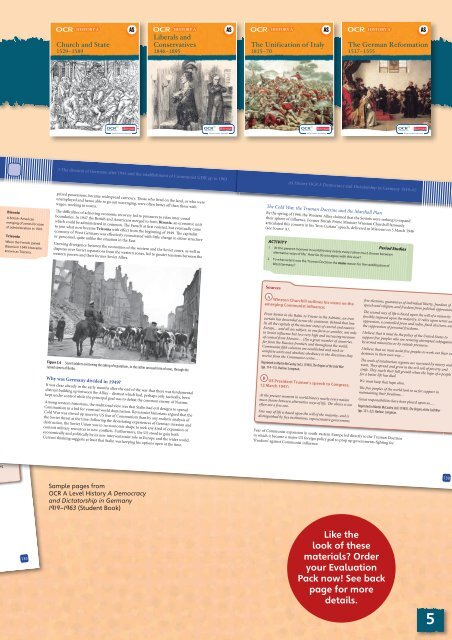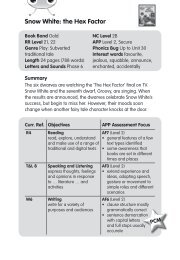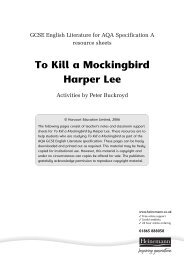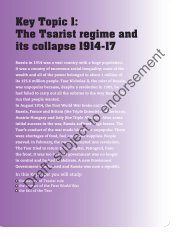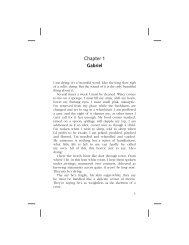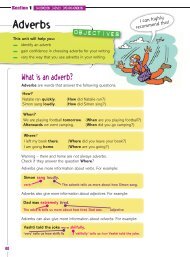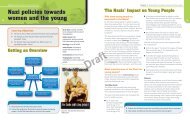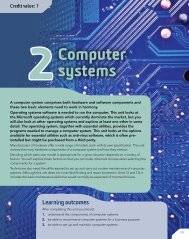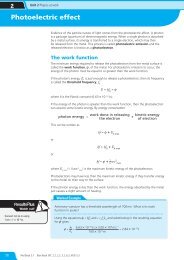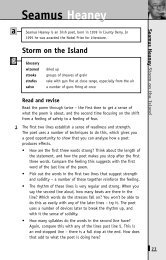71419 History A.indd - Pearson Schools
71419 History A.indd - Pearson Schools
71419 History A.indd - Pearson Schools
Create successful ePaper yourself
Turn your PDF publications into a flip-book with our unique Google optimized e-Paper software.
HISTORY A<br />
Democracy and<br />
Church and State<br />
1529–1589<br />
HISTORY A<br />
Liberals and<br />
Conservatives<br />
1846–1895<br />
HISTORY A<br />
Democracy and<br />
The Unification of Italy<br />
1815–70<br />
HISTORY A<br />
Democracy and<br />
The German Reformation<br />
1517–1555<br />
Official Publisher Partnership<br />
Official Publisher Partnership<br />
Official Publisher Partnership<br />
Official Publisher Partnership<br />
5 The division of Germany after 1945 and the establishment of Communist GDR up to 1963 AS <strong>History</strong> OCR A Democracy and Dictatorship in Germany 1919–63<br />
prized possessions, became widespread currency. Those who lived on the land, or who were<br />
unemployed and hence able to go out scavenging, were often better off than those with<br />
wages, working in towns.<br />
Bizonia<br />
A British–American<br />
merging of zones for ease<br />
of administration in 1947.<br />
Trizonia<br />
When the French joined<br />
Bizonia in 1949 it became<br />
known as Trizonia.<br />
The difficulties of achieving economic recovery led to pressures to relax inter-zonal<br />
boundaries. In 1947 the British and Americans merged to form Bizonia, an economic unit<br />
which could be administered in common. The French at first resisted, but eventually came<br />
to join what now became Trizonia with effect from the beginning of 1949. The capitalist<br />
economy of West Germany was effectively resuscitated with little change in either structure<br />
or personnel, quite unlike the situation in the East.<br />
Growing divergence between the economies of the western and the Soviet zones, as well as<br />
disputes over Soviet reparations from the western zones, led to greater tensions between the<br />
western powers and their former Soviet Allies.<br />
The Cold War, the Truman Doctrine and the Marshall Plan<br />
By the spring of 1946, the Western Allies claimed that the Soviets were seeking to expand<br />
their sphere of influence. Former British Prime Minister Winston Churchill famously<br />
articulated this concern in his ‘Iron Curtain’ speech, delivered in Missouri on 5 March 1946<br />
(see Source A).<br />
ACTIVITY Period Studies<br />
1 ‘At the present moment in world history nearly every nation must choose between<br />
alternative ways of life.’ How far do you agree with this view?<br />
2 To what extent was the Truman Doctrine the main reason for the stablilisation of<br />
West Germany?<br />
Sources<br />
A Winston Churchill outlines his views on the<br />
emerging Communist influence:<br />
free elections, guarantees of individual liberty, freedom of<br />
speech and religion, and freedom from political oppression.<br />
From Stettin in the Baltic to Trieste in the Adriatic, an iron<br />
curtain has descended across the continent. Behind that line<br />
lie all the capitals of the ancient states of central and eastern<br />
Europe… and all are subject, in one form or another, not only<br />
to Soviet influence but to a very high and increasing measure<br />
of control from Moscow… [I]n a great number of countries,<br />
far from the Russian frontiers and throughout the world,<br />
Communist fifth columns are established and work in<br />
complete unity and absolute obedience to the directions they<br />
receive from the Communist centre… .<br />
The second way of life is based upon the will of a minority<br />
forcibly imposed upon the majority. It relies upon terror an<br />
oppression, a controlled press and radio, fixed elections, and<br />
the suppression of personal freedoms.<br />
I believe that it must be the policy of the United States to<br />
support free peoples who are resisting attempted subjugation<br />
by armed minorities or by outside pressures.<br />
I believe that we must assist free peoples to work out their ow<br />
destinies in their own way…<br />
roblems<br />
es in<br />
oduce<br />
ost-Nazi<br />
have<br />
with one<br />
Figure 5.4 Soviet soldiers overseeing the taking of reparations, in the rather unusual form of cows, through the<br />
ruined streets of Berlin.<br />
Why was Germany divided in 1949?<br />
It was clear already in the early months after the end of the war that there was fundamental<br />
distrust building up between the Allies – distrust which had, perhaps only tactically, been<br />
kept under control while the principal goal was to defeat the common enemy of Nazism.<br />
Among western historians, the traditional view was that Stalin had evil designs to spread<br />
Communism in a bid for eventual world domination. Revisionist historians argued that the<br />
Cold War was stirred up more by US fear of Communism than by any realistic analysis of<br />
the Soviet threat at the time: following the devastating experiences of German invasion and<br />
destruction, the Soviet Union was in no economic shape to seek any kind of expansion or<br />
commit military resources to new conflicts. Furthermore, the US stood to gain both<br />
economically and politically by its new interventionist role in Europe and the wider world.<br />
Current thinking suggests at least that Stalin was keeping his options open at the time.<br />
Reprinted in Martin McCauley (ed.), (1983).The Origins of the Cold War<br />
(pp. 114–15). Harlow: Longman.<br />
B US President Truman’s speech to Congress,<br />
12 March 1947:<br />
At the present moment in world history nearly every nation<br />
must choose between alternative ways of life. The choice is too<br />
often not a free one.<br />
One way of life is based upon the will of the majority, and is<br />
distinguished by free institutions, representative government,<br />
The seeds of totalitarian regimes are nurtured by misery and<br />
want, They spread and grow in the evil soil of poverty and<br />
strife. They reach their full growth when the hope of a people<br />
for a better life has died.<br />
We must keep that hope alive.<br />
The free peoples of the world look to us for support in<br />
maintaining their freedoms…<br />
Great responsibilities have been placed upon us… .<br />
Reprinted in Martin McCauley (ed.) (1983). The Origins of the Cold War<br />
(pp. 121–22). Harlow: Longman.<br />
Fear of Communist expansion in south-eastern Europe led directly to the Truman Doctrine<br />
in which it became a major US foreign policy goal to prop up governments fighting for<br />
‘freedom’ against Communist influence.<br />
y.<br />
ederal<br />
rg.<br />
Sample pages from<br />
OCR A Level <strong>History</strong> A Democracy<br />
and Dictatorship in Germany<br />
1919–1963 (Student Book)<br />
139<br />
135<br />
Like the<br />
look of these<br />
materials? Order<br />
your Evaluation<br />
Pack now! See back<br />
page for more<br />
details.<br />
5


